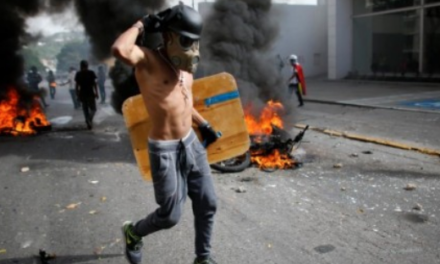On Thursday I was interviewed by the BBC regarding the protests that have broken out around Venezuela this week (interview starts at 2:25), among people angry that they have not received the traditional staple of Latin American holiday meals: pernil (pork leg). In early December the government had promised that each Venezuelan family would receive a pernil in their CLAP bags, and many of them had already made the payment necessary to receive theirs. Alas most of these perniles never arrived and people who were counting on them were upset. (See local coverage and images here, here, and here)
These local protests garnered international attention when President Nicolás Maduro accused Portugal of sabotaging the government’s delivery on its pernil promises. A Portuguese finance official quickly responded that the Portuguese government did not have the power to sabotage pork shipments even if they wanted to since Portugal has a market economy. And journalists who contacted Portuguese pork providers revealed that at least one of them still has not received payment from the perniles they delivered to the government in 2016.
Despite the somewhat prosaic nature of pork leg as the motivation for street protests, it actually is an important development for the following reasons. These protests show that support or tolerance of the Maduro government among the poorest and most dependent Venezuelans is indeed contingent on the government delivering the goods. With Venezuela steadily sliding into default and an economic situation that will only get worse, will the government be as effective at putting down food protests as it has been with middle class democracy protests?
The scorn heaped upon the pernil protestors by middle class government opponents, who on social media have portrayed them as infra-citizens who can be bribed in to voting for a government by promises of pork, also show how elusive any kind of unified, cross-class movement against the Maduro government still is. These same commentators would likely have no problem with a government putting forward tax incentives for foreign investment. But the logic is the same. Elected officials make promises to respond to the needs of the people, whatever they may be, and when they do not do so, people feel betrayed. In a dysfunctional democracy like Venezuela’s has long been, taking to the streets is the logical way to make your demands known.




